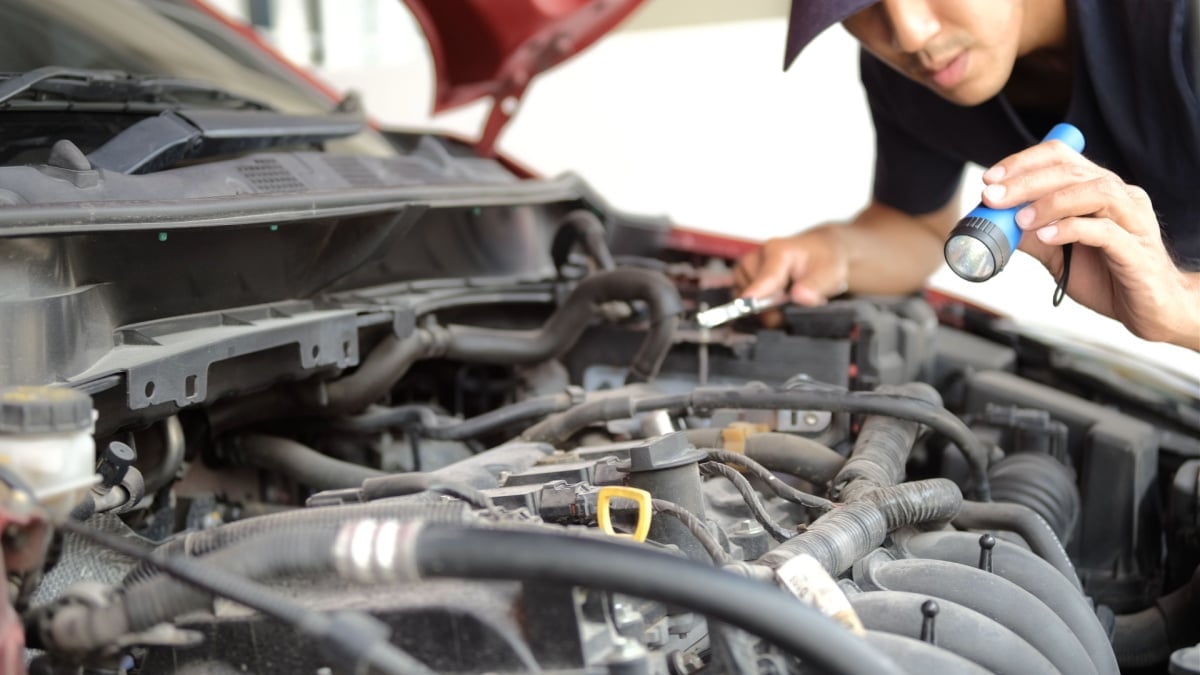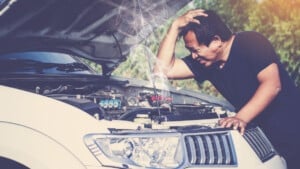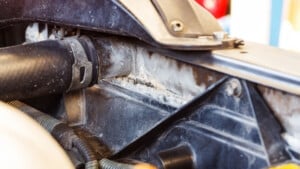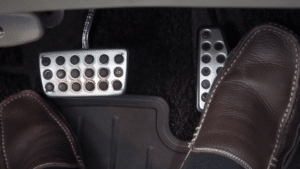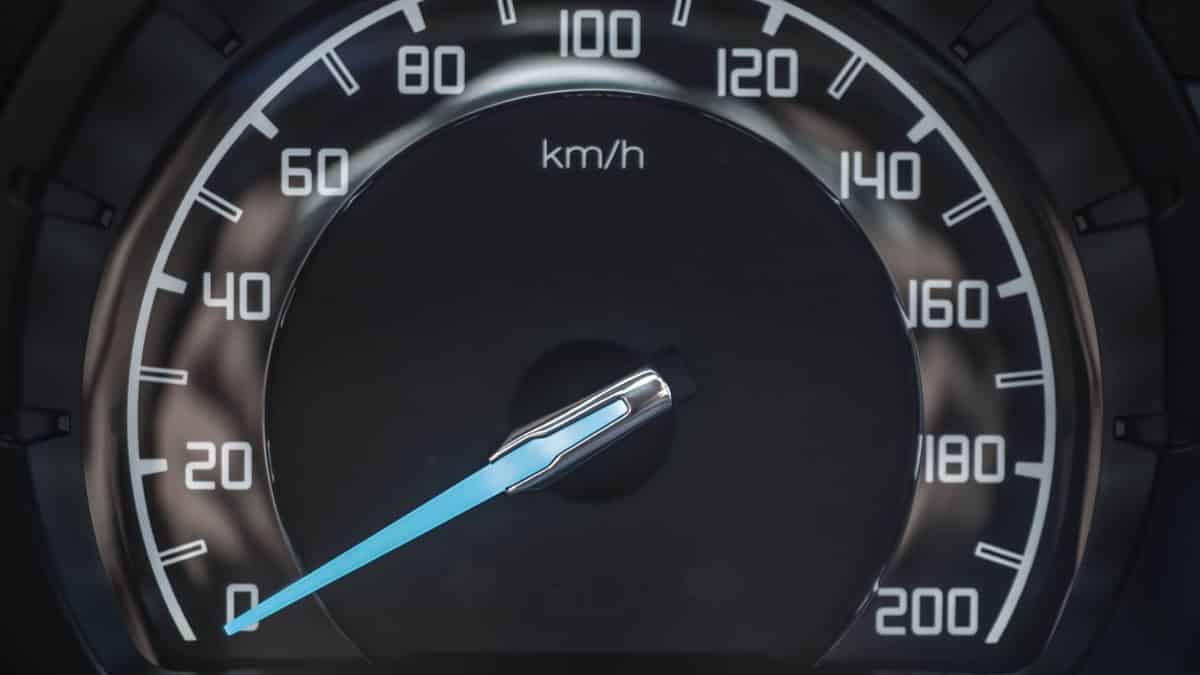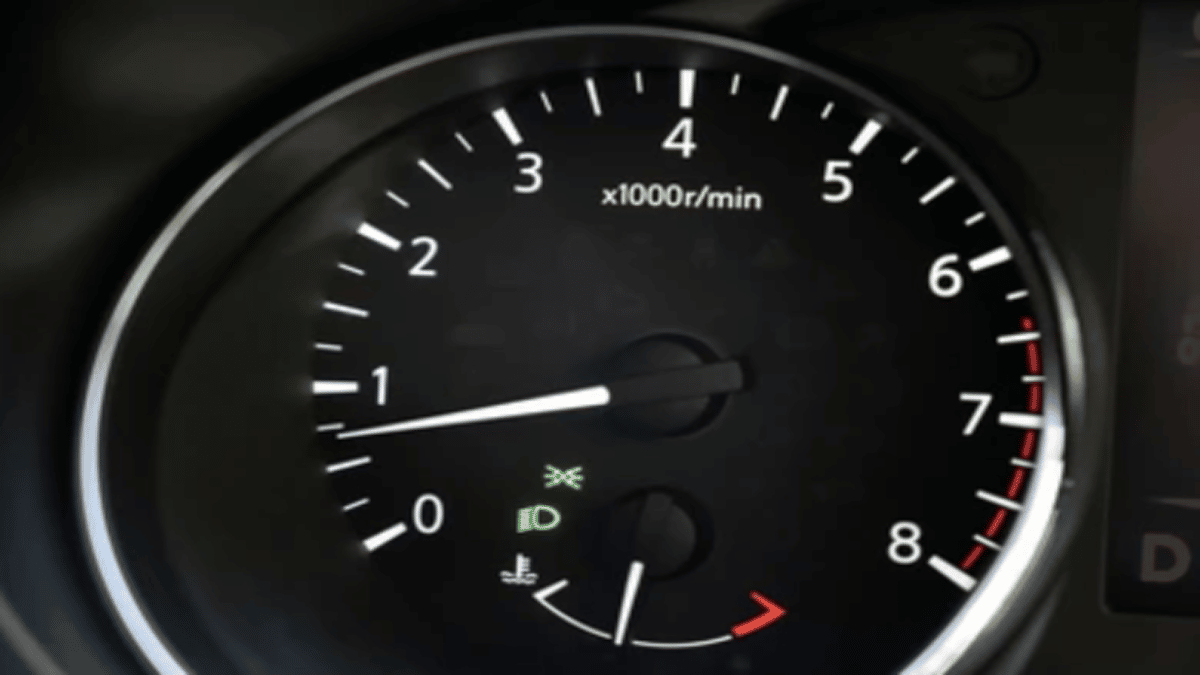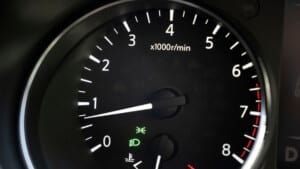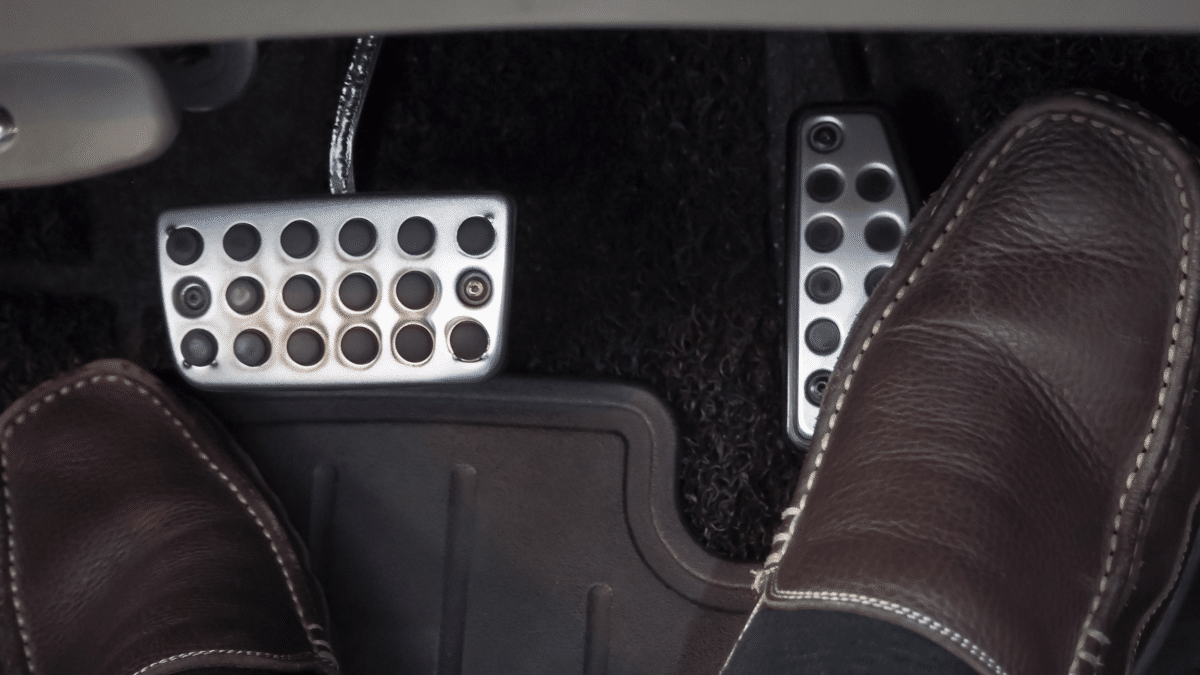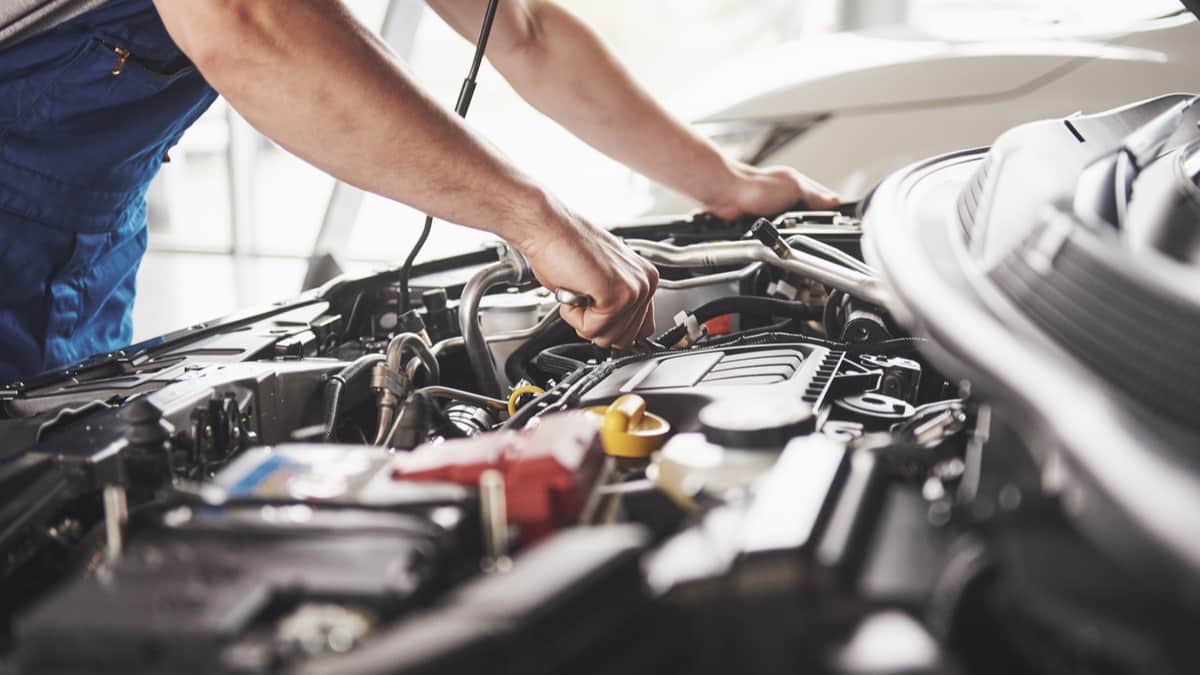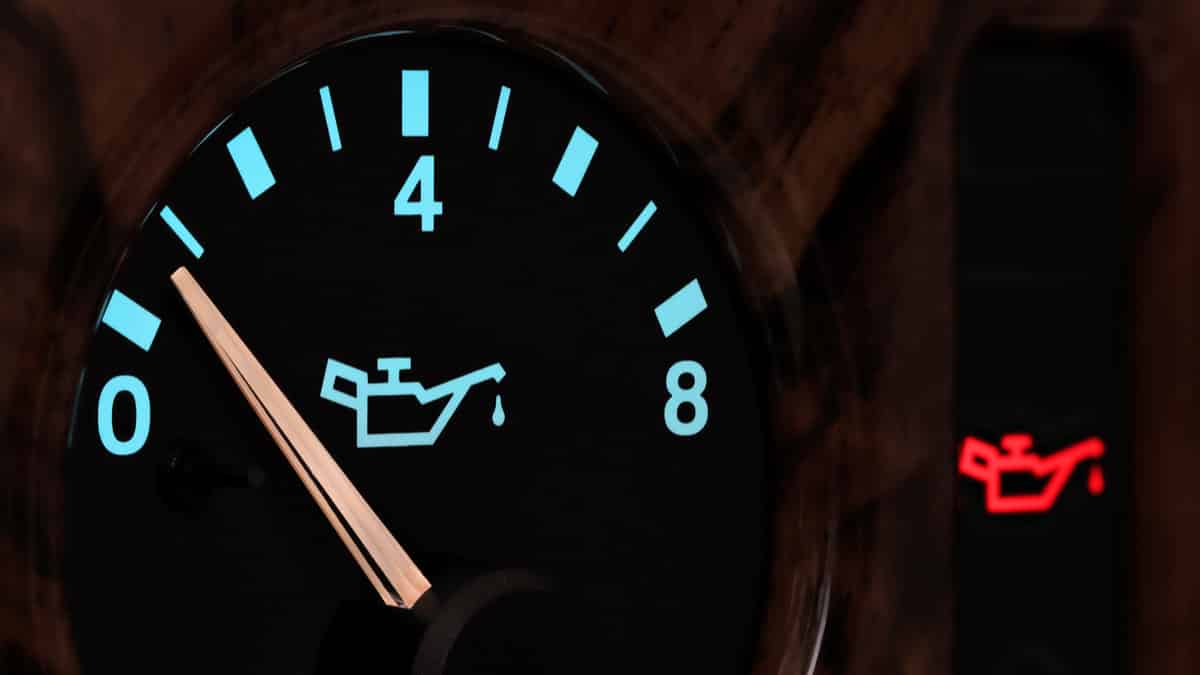After many miles of driving your car, you are likely used to the sound it makes when it is idling. For that reason, any variation of noise or feel is enough to alarm you. If the car rattles when idle or makes strange sounds, you want to know how to fix it.
In this guide, we give you the top reasons your car is rattling during idle. We also show you ways to fix the problem and offer up some answers to questions you’ve been asking.
Reasons Why A Car Rattles At Idle
Rattling during idle is usually caused by a damaged or loose exhaust heat shield or bad catalytic converter. It can also be the result of other loose exhaust parts, low oil pressure, failing motor mounts, damaged engine parts and a faulty belt tensioner or idler pulley.
Let’s review these seven options, so you can diagnose the problem.
1. Damaged Or Loose Exhaust Heat Shield
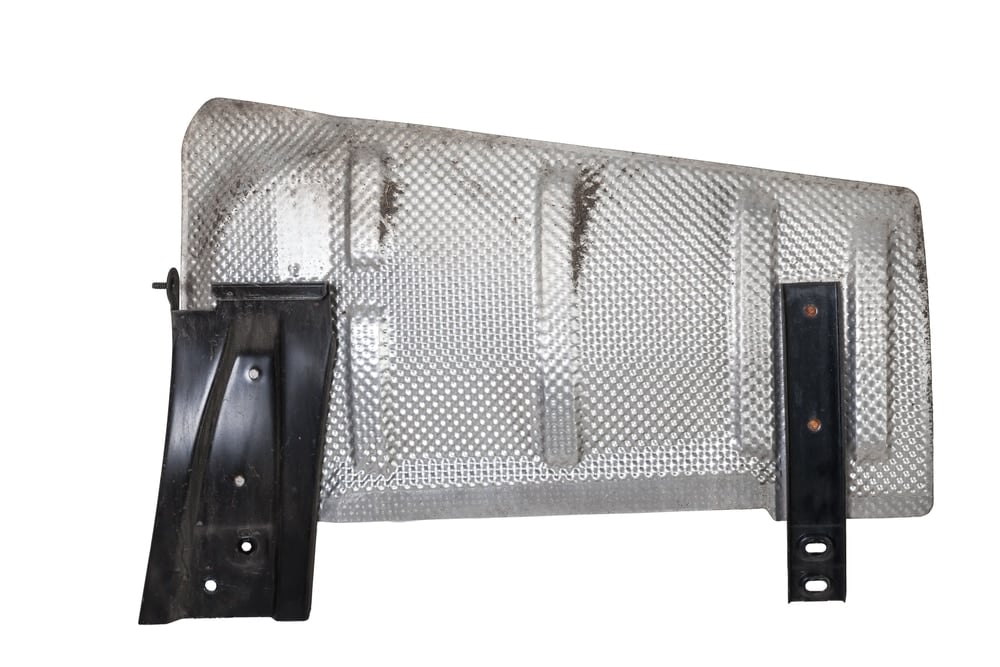
Exhaust heat shields surround components such as the muffler, catalytic converter, exhaust pipes and exhaust manifold. It’s riveted or bolted to the exhaust so it can dissipate and absorb heat from the engine.
There are also heat shields bolted to the car’s chassis, which can come loose and touch the exhaust system, causing a rattling noise.
Over time, the rivets and welds break loose or the heat shield gets damaged, leaving it to rattle. You may not hear it as much when you are driving, but it has a distinct sound during idle.
2. Damaged Catalytic Converter
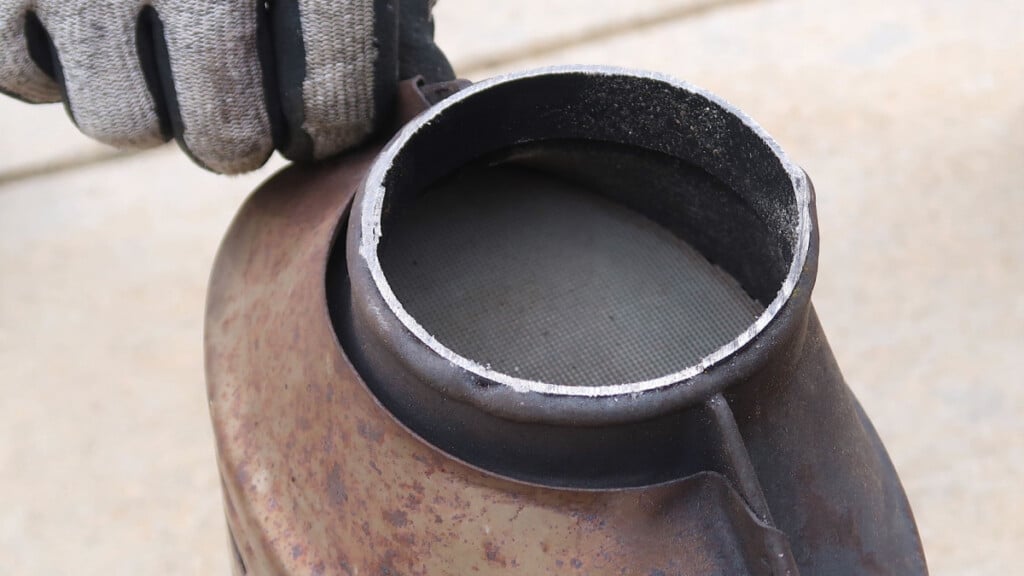
The catalytic converter takes exhaust gases and makes them less dangerous to the environment. Over time, it can become clogged and exhaust gases will get trapped, causing the engine to work harder. The abnormal flow of exhaust gases can lead to a vibration during idle.
You can also notice some rattling if the honeycomb inside the catalytic converter gets cracked or damaged. Because it’s made from ceramic, pieces can fall off into the exhaust, creating a rattle.
RELATED: 9 Symptoms Of A Bad or Clogged Catalytic Converter
3. Other Loose Exhaust Parts
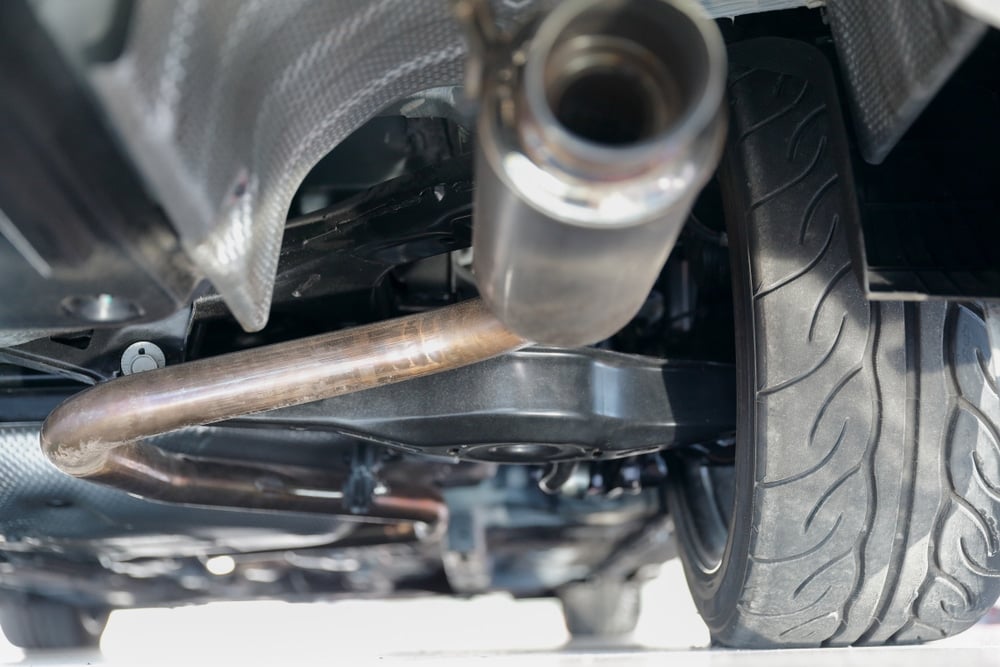
The exhaust system is made up of several parts that can break loose and create a rattle. Most of the parts are bolted together, so it’s not abnormal for a connection to fail.
The rattling may be caused by a flex pipe, muffler or resonator pipe. It could also be the result of a loose clamp or bracket holding the pieces in place.
4. Low Oil Pressure
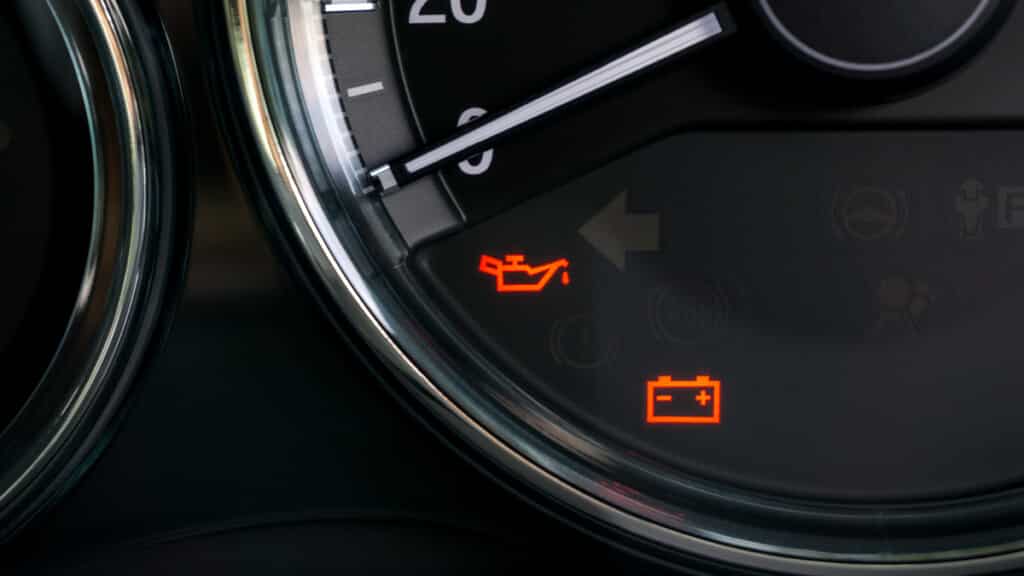
When oil pressure drops too low, you can hear a rattling sound in the engine during idle. The rattle occurs because of the friction happening among the crankshaft bearings.
Permanent engine damage can occur from running the engine without the right amount of oil. However, low oil pressure isn’t just caused by a lack of oil. It can also be due to a worn-out oil pump, a clogged filter or damage of the internal components.
5. Failing Motor Mounts
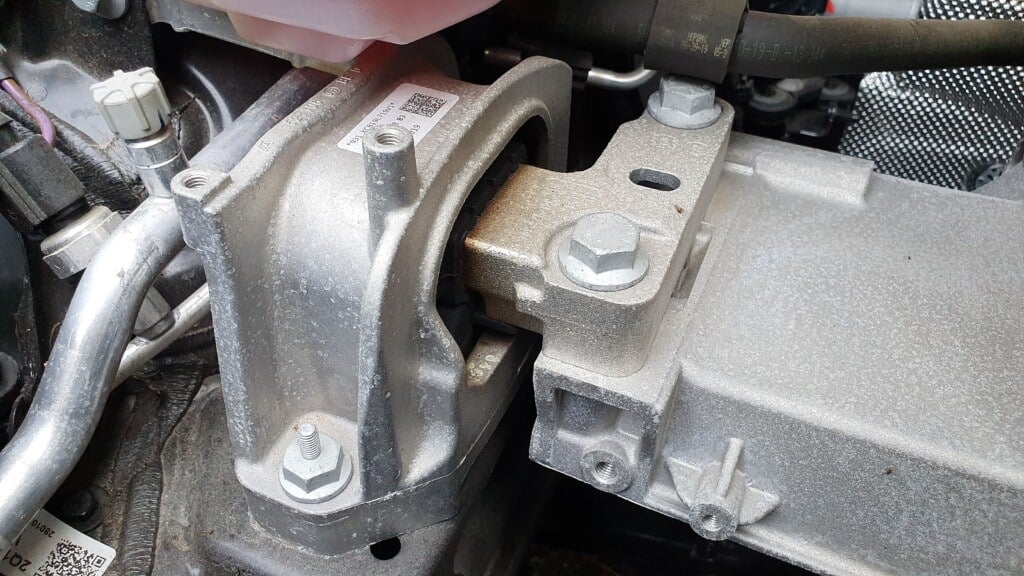
Motor mounts are designed to hold the engine in place. Yet, over time, the torque of the engine can cause these mounts to break.
When that happens, you hear increased vibrations from under the hood. It also causes impact noises as you start to accelerate.
The transmission also has mounts that operate the same way. If the rattle and vibration aren’t coming from the motor, don’t forget to inspect the ones on the transmission too.
6. Faulty Belt Tensioner Or Idler Pulley
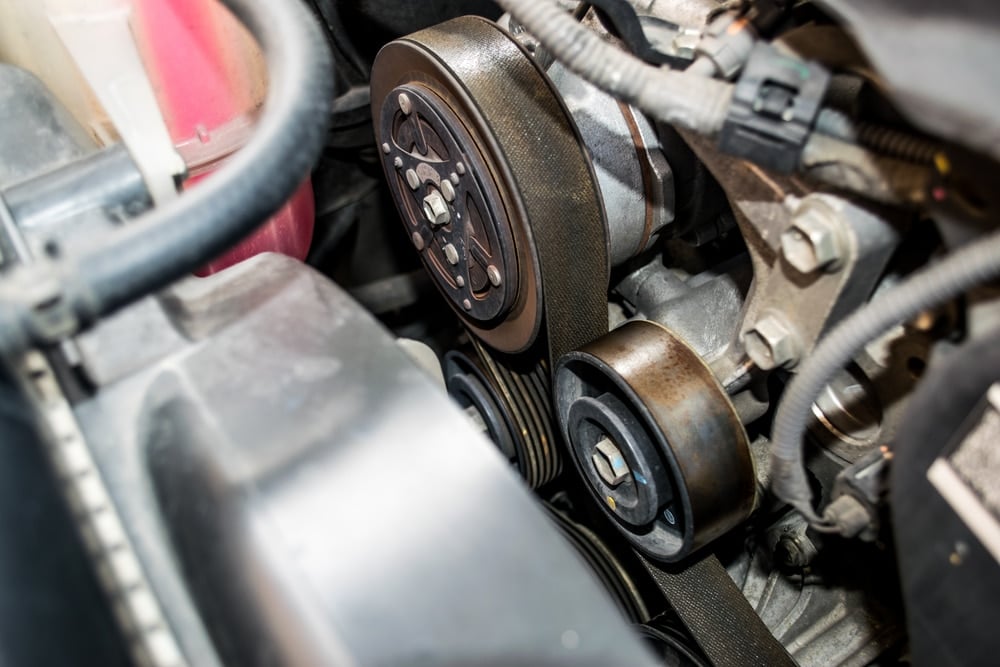
The idler pulley and tensioner help the serpentine belt run on a smooth path. This belt is needed to run the alternator, water pump, radiator fan and other accessories. The tensioner pulley is spring-loaded, needed to keep the belt tight and in alignment. Additionally, the idler pulley routes the belt so tension can be maintained.
If either of these parts is worn, the serpentine belt won’t be able to travel smoothly, causing an unusual rattle. When the issue doesn’t get resolved immediately, the belt can slip off of the path, which causes many more problems.
RELATED: 7 Symptoms Of A Bad Serpentine Belt and Replacement Cost
7. Other Damaged Engine Parts
An engine rattle could be the sign of something more serious, especially if it’s an internal noise. An old spark plug can create a vibration, as well as collapsed lifters.
Additionally, piston slap and rod knock are also problems turning into vibration and rattles. Either way, you want to have the problem fixed before it damages the engine.
How to Fix a Car That Rattles at Idle
Some aspects of fixing your car are simple to perform and don’t require a lot of tools. If you feel up to diagnosing the system yourself, we recommend starting with a factory service manual. From there, you can follow these steps.
1. Open The Hood And Listen For Rattling Noises
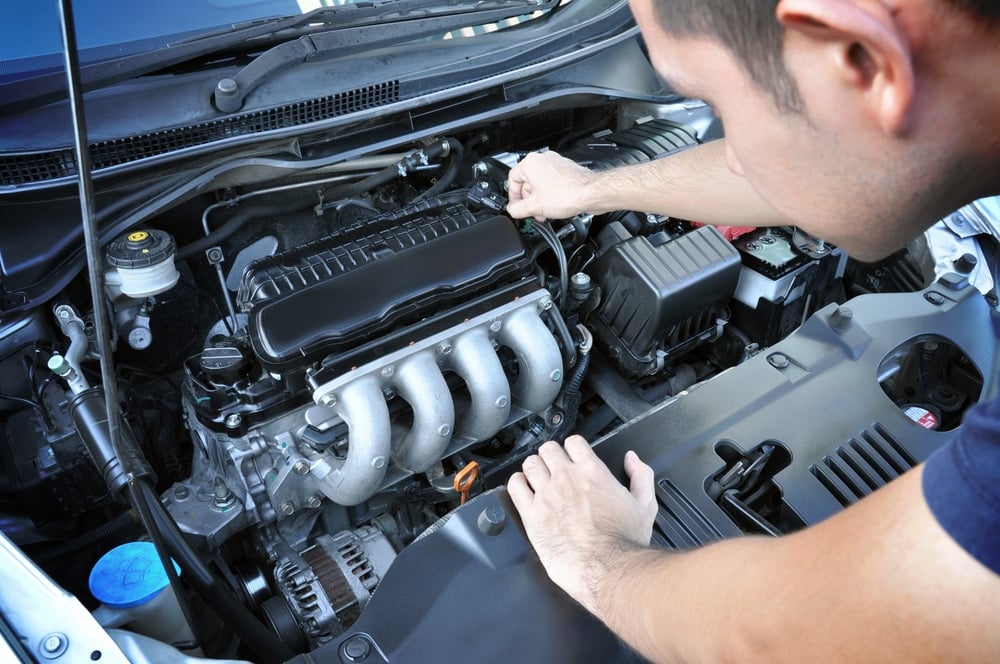
Sometimes it only takes the five senses to figure out what’s going on. In this case, you only need the use of one. With your ears, you can learn a lot about the problem.
With the engine running, take a look under the hood to see if you can pinpoint where the noise is coming from. Just be careful not to get too close to moving parts that can hurt you.
If you find the noise under the hood, see if there’s something that can easily be fixed. Maybe you just need to tighten a bolt or secure something that has become loose.
2. Listen Under The Vehicle
If the rattling isn’t coming from under the hood, you need to move on what’s below the vehicle. With the car still running, lay on the ground next to the car and look underneath.
If that doesn’t provide you with enough room to see everything, you can jack it up. However, you don’t want to get underneath the car unless it is properly secured on jack stands.
3. Check Exhaust
You can use a rubber hammer to check the catalytic converter and exhaust, but you should always be careful about how much force you use. Here are some basic steps.
- Raise up the front of your vehicle to gain better access to the converter.
- Support the vehicle on jack stands. You can find the appropriate jack locations in your owner’s manual.
- Chock your rear wheels and apply the parking brake.
- Tap on the converter with your rubber mallet.
If you hear a rattle inside, the internal substrate is collapsed and it’s time to replace it.
4. Check Engine Oil And Pressure
If the oil pressure is low, you should get a warning light on the dashboard. This is one of those signs that you should stop driving immediately until you figure out what’s causing it.
Additionally, you want to check the engine oil to ensure the system is fully topped off. If it’s low, add some more fluid. However, you should also check for a leak. If you don’t see a leak, but the oil level keeps going down, it could be internal.
The oil may be leaking through a blown head gasket. You can figure this out by looking for oil in the coolant and vice versa.
Additionally, if the oil looks contaminated and old, it might be time to change it. Just remember to use the right engine oil type for your car.
5. Check Serpentine Belt And Tensioners
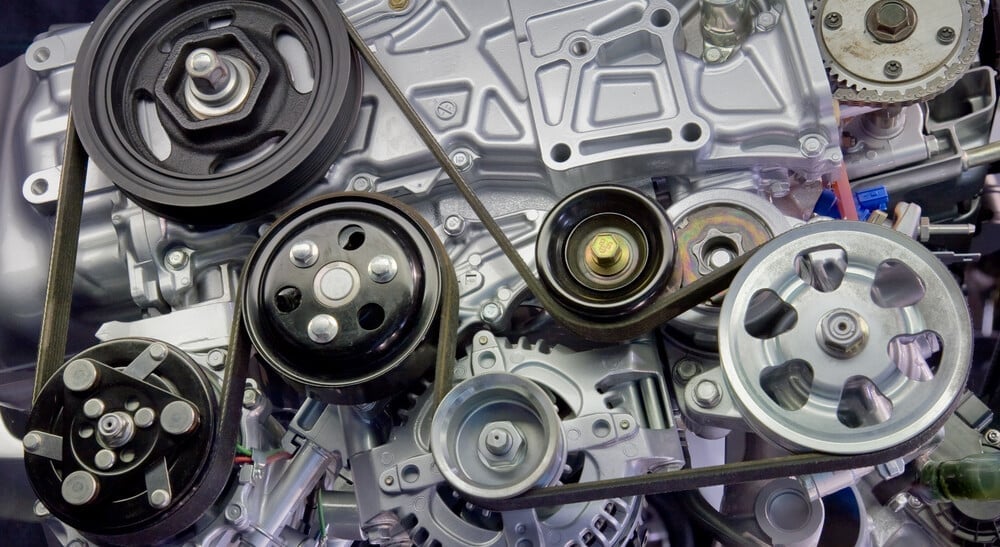
There are multiple ways to check your serpentine belt, the tensioners and the pulleys. Here are some tips to help you out.
- Listen to the belt as it runs. When it’s worn, it can make a squealing sound.
- Watch for signs of glazing on the belt.
- Check the belt for fraying or cracking.
- Inspect the tension to make sure there’s no play in the belt.
You can also use a wear gauge to see if the belt needs to be replaced. Before you take off the serpentine belt, make a note of how it weaves around the accessories. There should also be a diagram under the hood.
6. Contact A Professional
You can’t possibly know everything there is to know about the mechanical workings of your car. Even as professional mechanics, we are learning new things every day. While we think it’s great that you want to work on your vehicle, there comes a time when it’s best to involve a professional.
Reach out to a local repair shop if you don’t have the expertise or knowledge to fix the car. It probably won’t take a technician more than an hour to diagnose it and they will give you an estimate for the repair.
Can low oil cause rattle?
If the oil pressure gets too low in your engine, a rattling sound can occur, especially during idle. This rattle comes from the friction that occurs because of the crankshaft bearings. Top off the system and check for any leaks to ensure the rattling doesn’t continue.
Can bad transmission fluid cause rattle?
Normally, when the transmission fluid gets low or old, it creates a whining sound. However, if the internal parts of the transmission are vibrating or rubbing, it could lead to a rattling sound. Check the transmission fluid level and top off the system if needed.
What does an engine sound like with low oil?
Most of the time, low oil will cause a ticking or a tapping sound from the engine. However, you may also hear a rattling noise, especially with low oil pressure. To resolve the issue, you want to top off the engine and check for any leaks. If there are no external leaks but fluid continues to drop, the leak may be internal.
Does a bad catalytic converter rattle?
The honeycomb structure inside the catalytic converter can break into pieces as it gets older. This breakage can lead to a rattling sound and the pieces can clog the catalytic converter. Until you replace the catalytic converter, you may see a Check Engine Light and fail emissions testing.
Can bad spark plugs cause rattle?
Bad spark plugs can cause a lot of problems, including a rattling sound, even if it’s very rare. Most often, fouled spark plugs lead to a decrease in engine performance, even to the point of the motor stalling. They can also create a drop in fuel economy and make it impossible to start the engine once the plugs are worn too much.
There’s never a reason to ignore a rattling sound while your car is idling. These noises are meant to get your attention, so you can prevent bigger problems. For example, if you notice that the serpentine belt is loose, you may be able to replace the tensioner. If the belt is worn, it’s more important to put a new one on before the belt slips and you lose the use of the alternator or water pump.
While it may not always be convenient to have car repairs done, it’s always better to act speedily at the first sign of trouble. What you don’t want to deal with is a larger car repair bill because you procrastinated.
Categories: Troubleshooting
